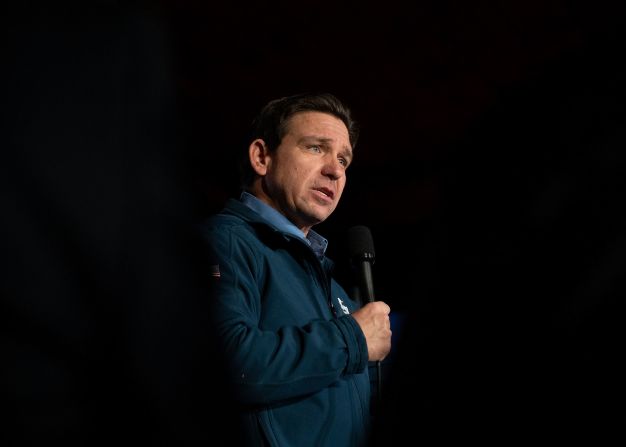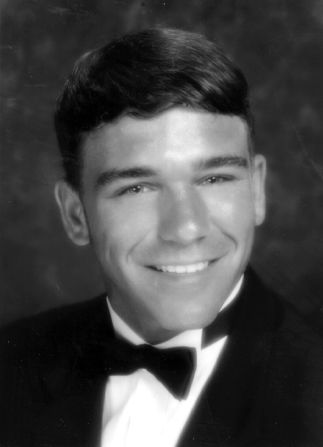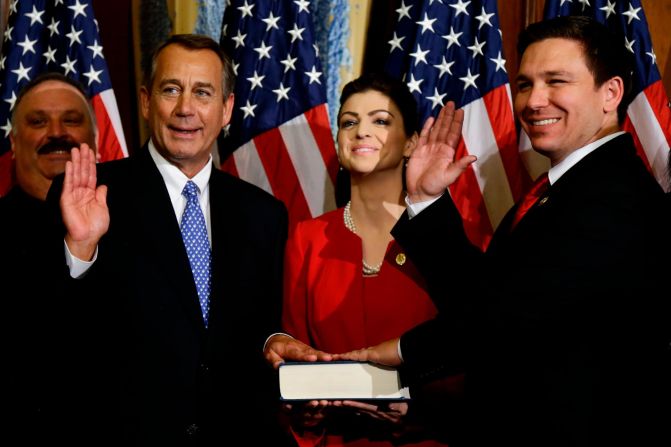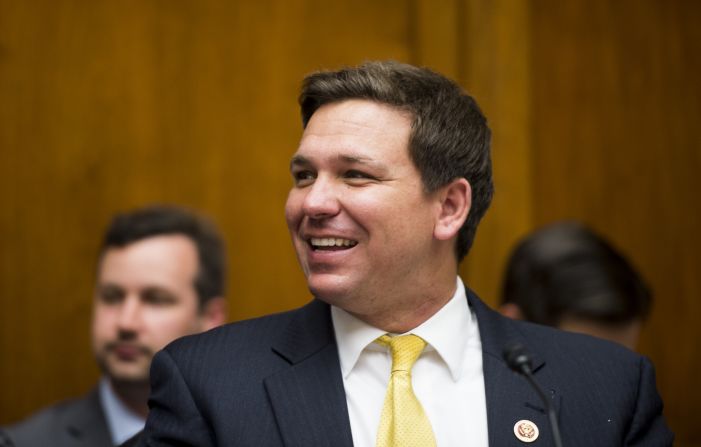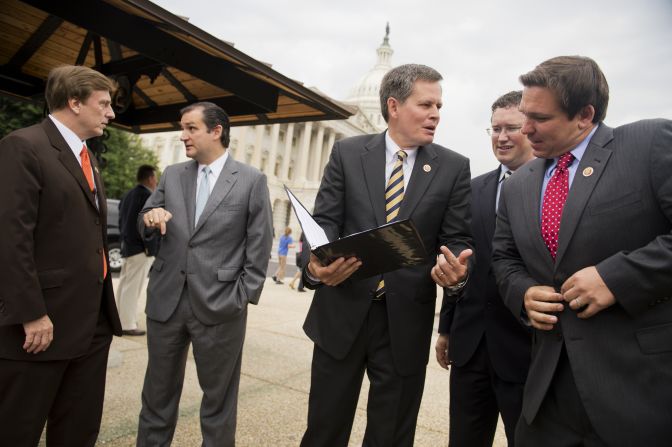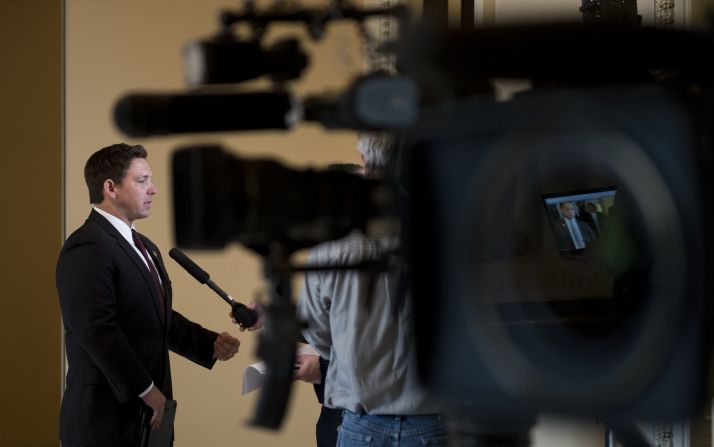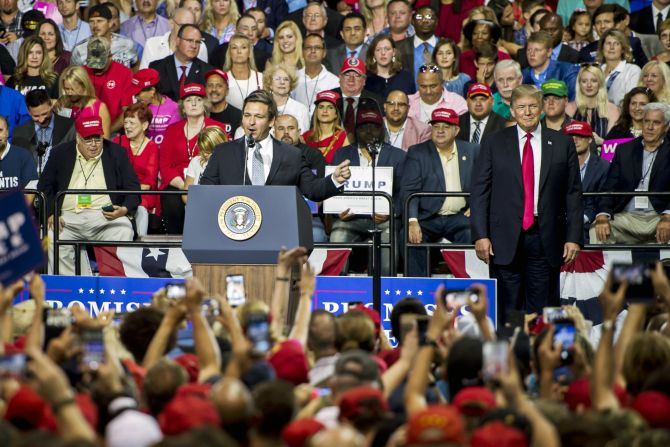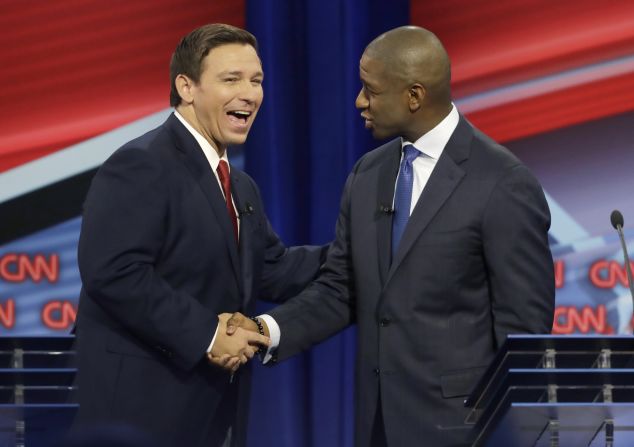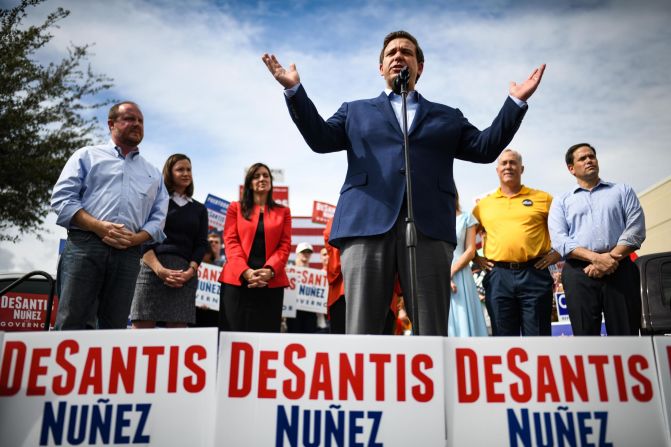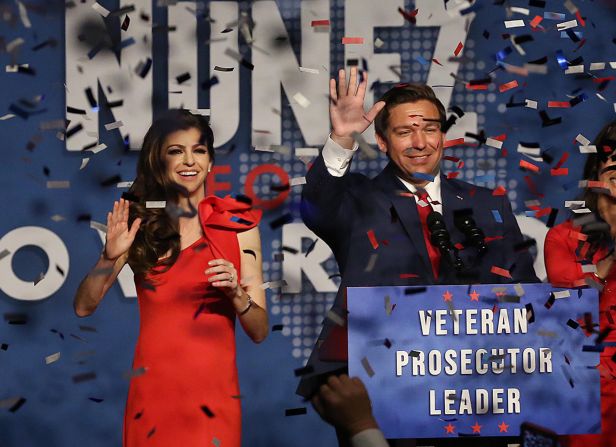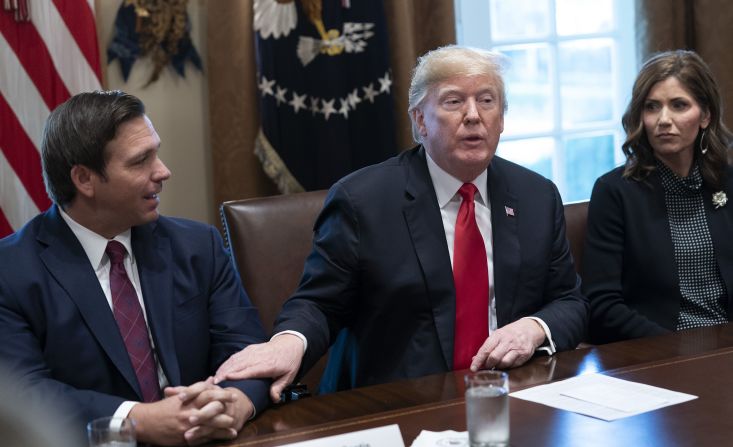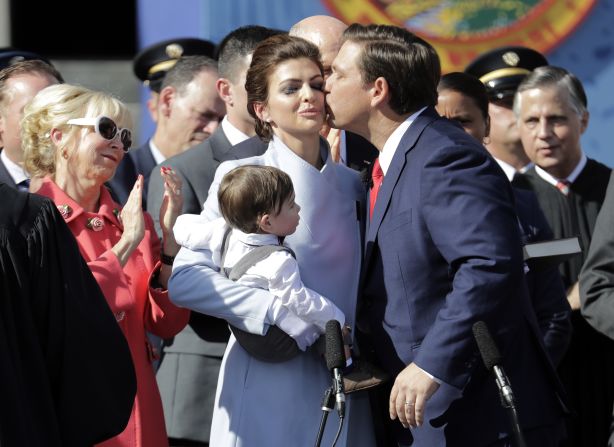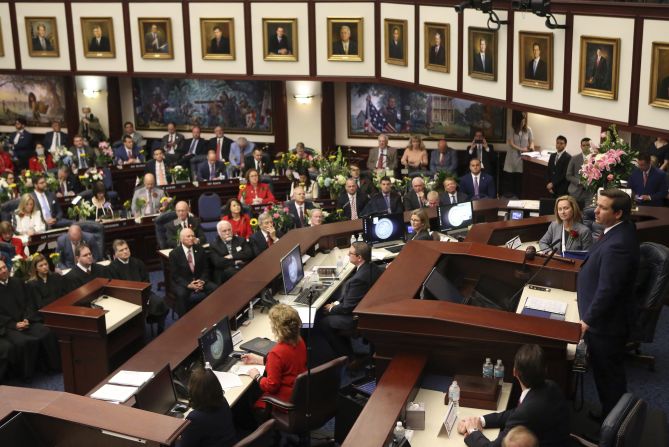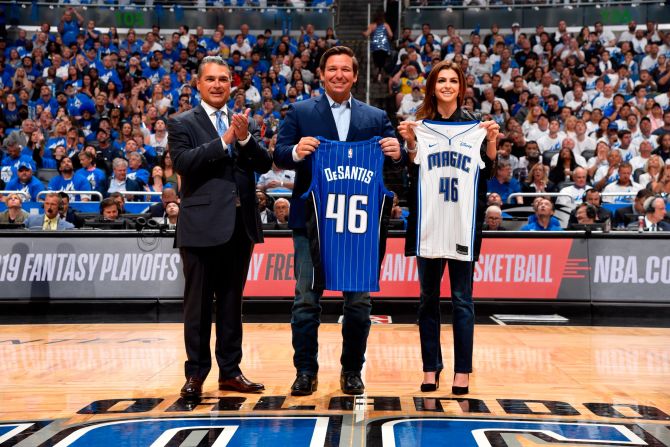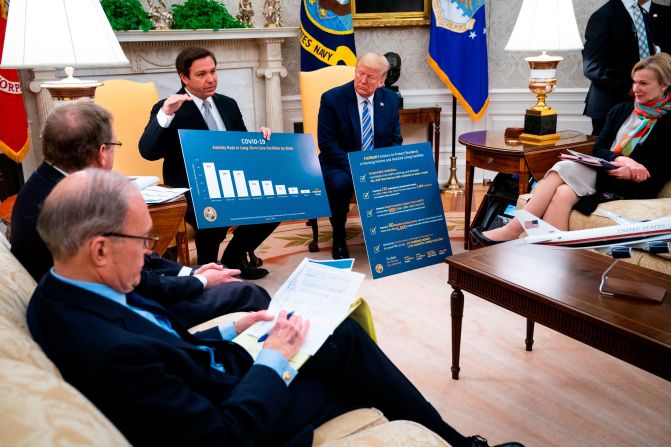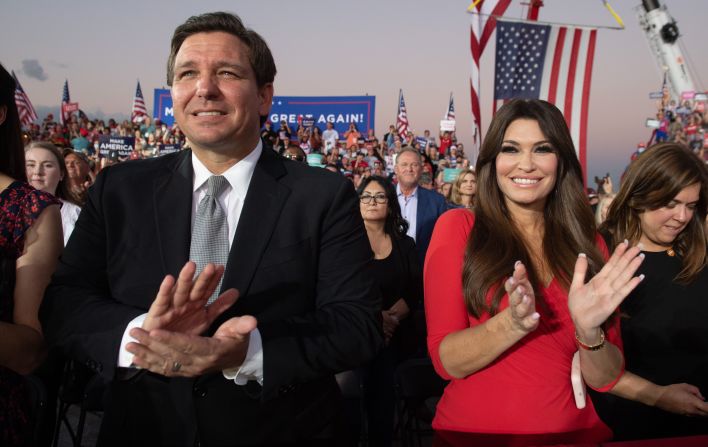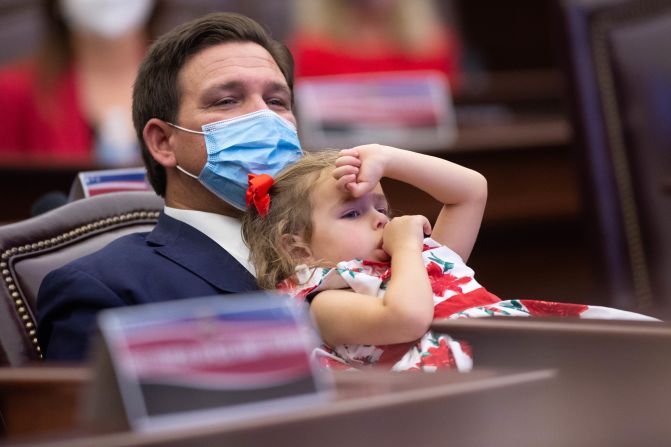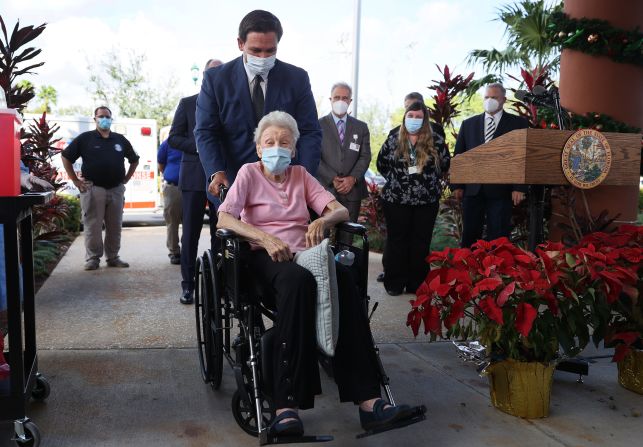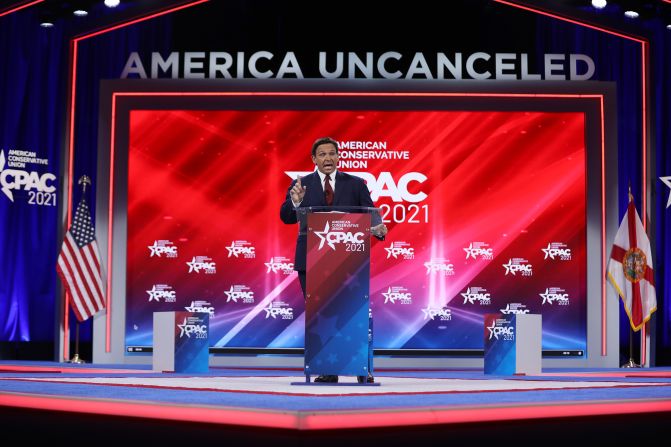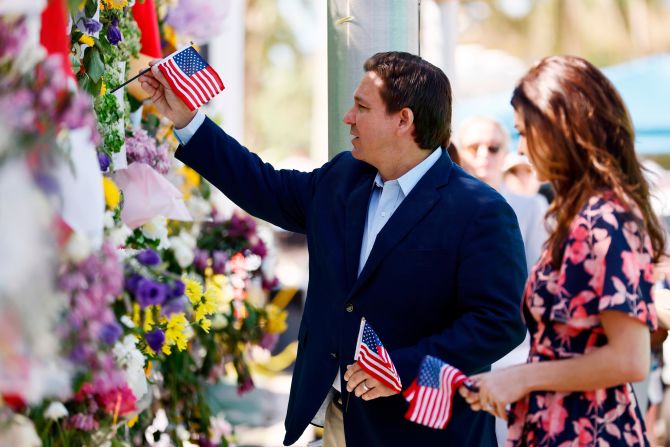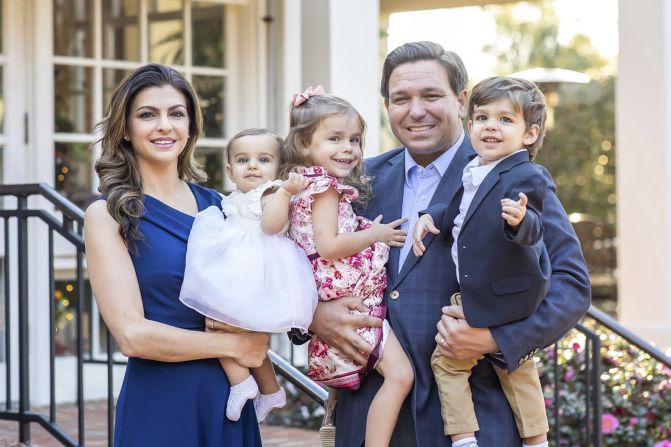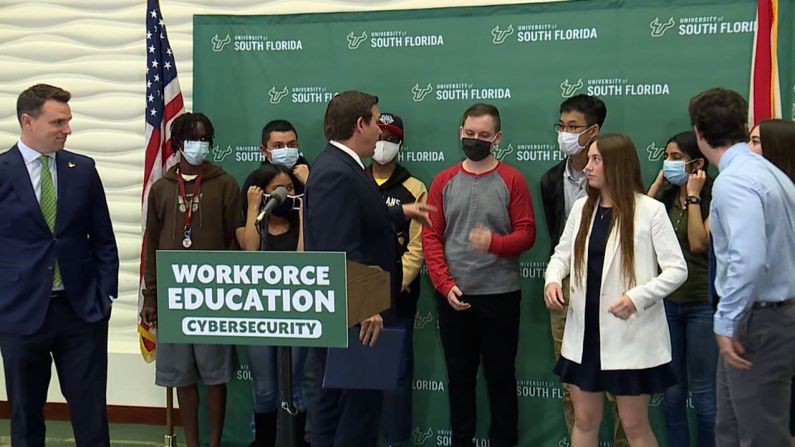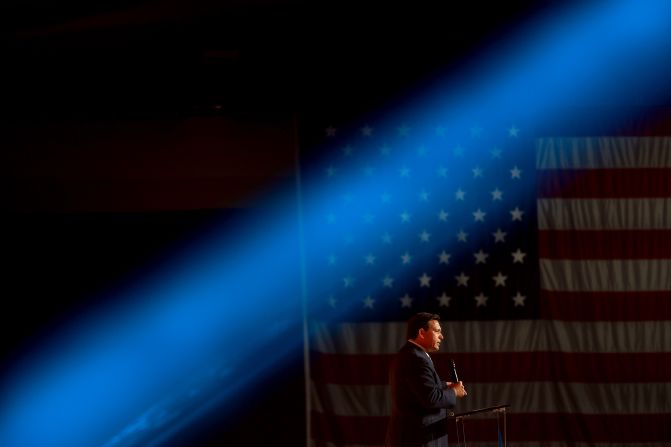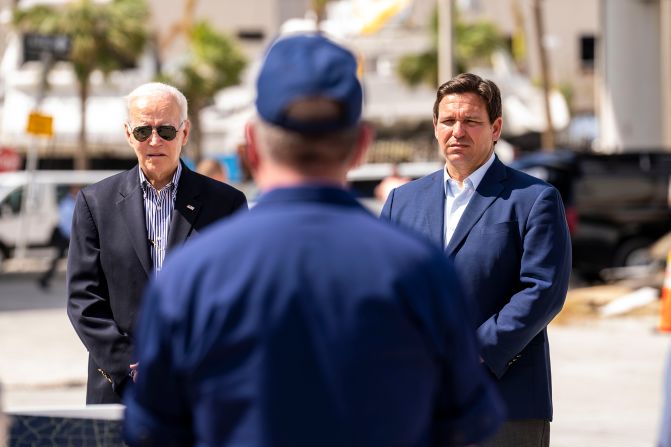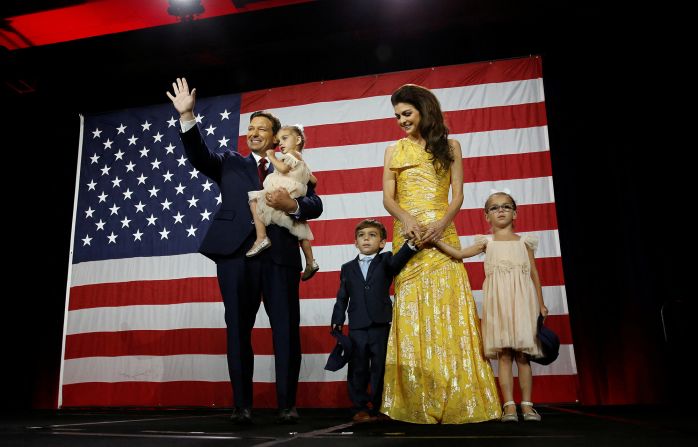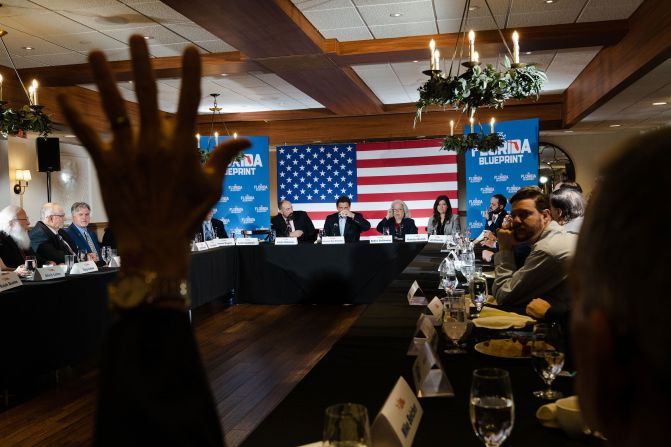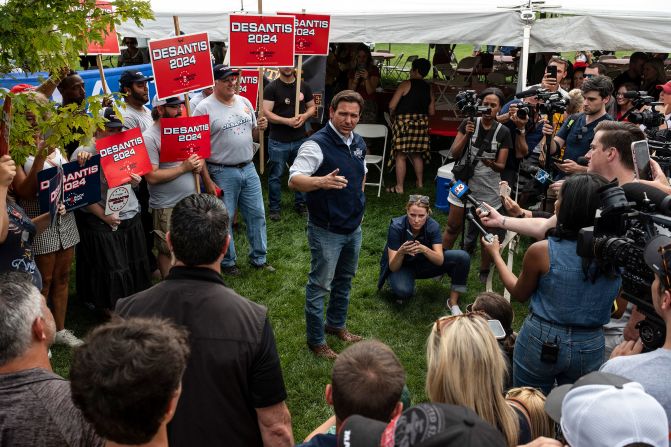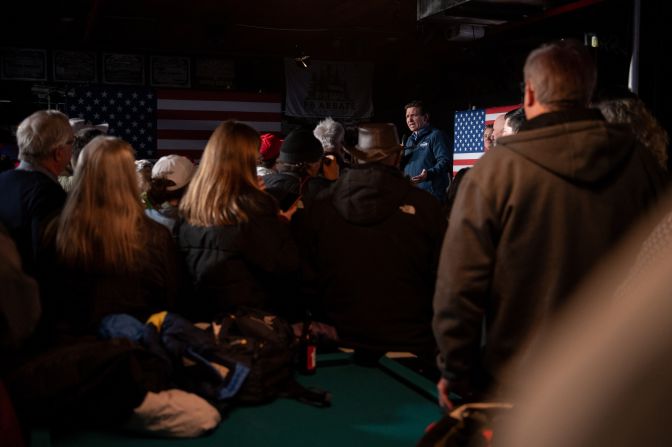Florida Gov. Ron DeSantis is set to field questions from Iowa voters in a CNN town hall Tuesday night, less than five weeks before the state’s January 15 caucuses kick off the 2024 Republican presidential nominating contest.
DeSantis is seeking to close his huge polling gap with the party’s front-runner, former President Donald Trump — and also distance himself from former South Carolina Gov. Nikki Haley, who has in recent weeks challenged DeSantis’ status as the party’s clear alternative to the former president.
DeSantis will take the stage at 9 p.m. ET from Grand View University in Des Moines, Iowa, for the town hall moderated by CNN’s Jake Tapper.
The town hall will stream live on CNN Max and for pay TV subscribers via CNN.com, CNN connected TV and mobile apps. It will also be available on demand beginning Wednesday to pay TV subscribers via CNN.com, CNN apps and Cable Operator Platforms.
Here are four things to watch:
DeSantis vs. Haley
Though Trump has overshadowed the entire 2024 GOP primary contest, the race-within-the-race to emerge as the party’s lone Trump alternative has dominated the party’s debates, forums and early-state television airwaves.
That race-within-the-race is increasingly down to DeSantis and Haley — and the Florida governor and his super PACs have ramped up their attacks on the former South Carolina governor in recent days.
In last week’s debate, the Florida governor waited all of 30 seconds into his first answer before he took aim at Haley, pulling her into a dispute over which bathrooms transgender people should be able to use.
In pictures: Florida Gov. Ron DeSantis
The pro-DeSantis super PAC Fight Right on Monday launched a new 30-second ad in Iowa media markets accusing her of flip-flopping on several issues and warning voters, “You can’t trust Nikki.” “I will not, not now, not ever support raising the gas tax,” Haley says in one clip; in the next, “Let’s increase the gas tax by 10 cents.” In another clip, Haley says, “I do not think we need to pull money from the UN.” In the next, she says, “Defund the UN as much as possible.”
DeSantis is all but certain to emphasize his criticisms of Haley on Tuesday night. Even if Trump is insurmountable in next month’s caucuses, Iowa could represent DeSantis’ best chance of separating himself from Haley.
Clock ticking in Iowa
Iowa is a particularly crucial state for DeSantis, who doesn’t have the advantages Haley enjoys with moderates in New Hampshire and home-state voters in South Carolina once the primary campaign shifts past the Hawkeye State’s January 15 caucuses.
And though DeSantis’ political operation’s attacks have been more focused on Haley, make no mistake — both are still far behind Trump in the polls.
Tuesday night’s town hall could provide a window into whether DeSantis is willing — and able — to broaden his appeal and prevent time from running out on his 2024 hopes.
Publicly, his campaign has insisted that the polls aren’t capturing the movement on the ground and the caucus turnout machine they have built in Iowa. DeSantis over the weekend gave voice to this belief, noting that the best organized candidates often see a bump on caucus day.
More on town halls
• Earlier this year, CNN hosted town halls with other GOP presidential candidates, including former President Donald Trump, former South Carolina Gov. Nikki Haley, former New Jersey Gov. Chris Christie and former Vice President Mike Pence, who has since dropped out of the race.
But privately, those close to the governor and his political operation had been eyeing the latest Des Moines Register/NBC/Mediacom Iowa Poll of likely GOP caucusgoers, hoping it would demonstrate a boost from the endorsement of popular Republican Gov. Kim Reynolds and from DeSantis completing his tour of all 99 counties.
That poll, released Monday morning, showed the opposite. It found that 51% of likely caucusgoers say Trump would be their first choice, with DeSantis well behind at 19% and Haley next at 16%. No other candidate tops 5%. That’s an even larger lead than Trump held in the same poll in October. DeSantis jumped three percentage points from October — but he needs to do much more to leave Iowa with an argument that he is the GOP’s lone viable Trump alternative.
DeSantis on Monday told reporters he believes his organizational strength in Iowa will allow him to outperform the poll numbers.
“They do these polls, they’re never accurate with the caucus, because it’s all about turning out the folks and then everyone you turn out they bring a neighbor, they bring a family member and then you get a great crescendo of support on caucus night,” DeSantis said at Perkins Restaurant in Dubuque.
Taking on Trump
DeSantis has long avoided aggressively criticizing Trump, who remains popular with the Republican base. But he has taken several swings at the former president in recent days as he seeks a message that can help him chip into Trump’s lead in Iowa in the race’s closing weeks.
In the last GOP debate, DeSantis didn’t directly answer a question about whether Trump is mentally fit for the presidency, but he said the nation needs someone younger than Trump, 77, or President Joe Biden, 81.
His criticism of Trump has largely come from the right, including saying in that debate that the former president didn’t fulfill his promises to build a wall on the US-Mexico border and force Mexico to pay for it.
Meanwhile, another case DeSantis has long tried to make against Trump — questioning his electability — has been undercut by swing-state polls in recent weeks that show the former president ahead of Biden.
DeSantis tried another angle Sunday, pointing to Trump’s vows of retribution against his political enemies. In Waterloo, the Florida governor said Trump is his “own worst enemy by not being able to control his mouth.”
“He’s running, if you listen to the stuff he’s saying, about personal retribution and about himself and his own issues,” DeSantis said at an event in Waterloo, Iowa. “I’m not running about my issues. I’m running about your issues. I’m running about your family. That’s going to be the focus for me.”
Shifting media strategy
At the onset of the race, it seemed unlikely DeSantis would participate in a traditional televised town hall hosted by a mainstream news outlet. Instead, he appeared poised to continue the same media strategy that helped fuel his ascent in the GOP: limiting interviews to a carefully curated and exceptionally friendly ecosystem of conservative outlets.
It’s an approach that was explained in strikingly blunt detail last year by Christina Pushaw, one of DeSantis’ more tenured media aides who now directs his campaign’s rapid response efforts. In a speech to a conservative conference titled “Defeating the Legacy Media’s Regime Narrative Enforcement,” Pushaw likened the press to “Democrat activists” and said that blocking access was critical to stripping the media of its legitimacy.
“They hate everything that we stand for. And I believe they hate this country. So what do we do?” Pushaw asked. “We cut them off.”
DeSantis’ political operation embodied that approach for a time – much to the chagrin of some aides and advisers – as he eschewed interviews with national outlets in the lead up to his campaign launch. When he ultimately jumped into the race, he opted to do so on X, the website formerly known as Twitter, in an interview with its then-new owner Elon Musk. The decision immediately elicited second guessing after glitches marred the announcement but it was nevertheless illustrative of his campaign’s non-traditional approach to media.
But as DeSantis struggled to break out of the crowded GOP field early on, the voices inside his orbit pushing for him to broaden his media exposure grew louder. His icy relationship with mainstream outlets thawed amid a summer reset of his campaign, when his campaign publicly pledged to get DeSantis in front of more cameras and microphones, and not just those owned by conservative outlets. DeSantis eventually sat down for his first interview with CNN, appeared on the Sunday political shows for the first time since becoming governor and granted major news organizations considerable access to his campaign. Tuesday’s town hall is the culmination of this deliberate shift.
CORRECTION: This story incorrectly named the Republican Party’s front-runner for the 2024 presidential nomination. It is Donald Trump.


